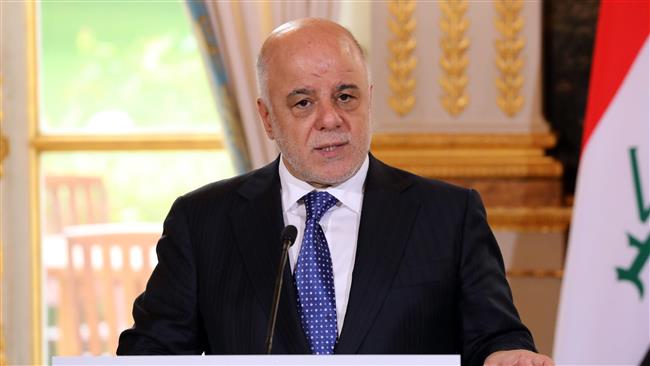
RNA - “No party has the right to interfere in Iraqi matters,” Abadi's media office said in a statement on Monday, citing a source close to the prime minister.
Abadi made the remarks after Tillerson said Iran and all other countries currently helping Iraq in its fight against the Daesh terrorist group needed to leave the Arab country now that the battle was drawing to a close.
“The foreign fighters in Iraq need to go home and allow the Iraqi people to regain control,” Tillerson said in the Saudi capital on Sunday.
Tillerson was speaking after a rare joint meeting with the leaders of Iraq and Saudi Arabia in Riyadh.
Hashd al-Sha’abi is an Iraqi state-sponsored umbrella organization composed of some 40 groups, which are mainly Shia Muslims. The force reportedly numbers more than 100,000 fighters. Iraqi authorities say there are between 25,000 and 30,000 Sunni tribal fighters within its ranks in addition to Kurdish Izadi and Christian units.
The fighters have played a major role in the liberation of Daesh-held areas to the south, northeast and north of the Iraqi capital Baghdad, ever since the terrorists launched an offensive in the country in June 2014.
On Sunday, Iranian Foreign Minister Mohammad Javad Zarif also slammed Tillerson’s remarks, saying they had been uttered under the influence of petrodollars of certain states.
“Exactly what country is it that Iraqis, who rose up to defend their homes against ISIS, return to?” Zarif said in a tweet late on Sunday, using an alternative name for Daesh. “Shameful US FP (foreign policy), dictated by petrodollars,” he tweeted.
Upon his arrival in the South African capital city of Pretoria on Sunday, Zarif also denounced the policies of US President Donald Trump’s administration as “isolated in the world.”
“Unfortunately, the Americans do not want to rectify their viewpoint that Iran is a source of stability and peace as well as a campaigner against terrorism in the region,” he said.
Daesh launched a terrorist offensive inside Iraq in 2014. It swiftly took over territory in the Arab country and posed a threat to seize Baghdad.
Iran has been providing advisory military assistance to the central government in Baghdad and the regional government in the Iraqi Kurdistan, helping them both maintain ground and win back territory lost to the terrorist group in 2014.
847/940